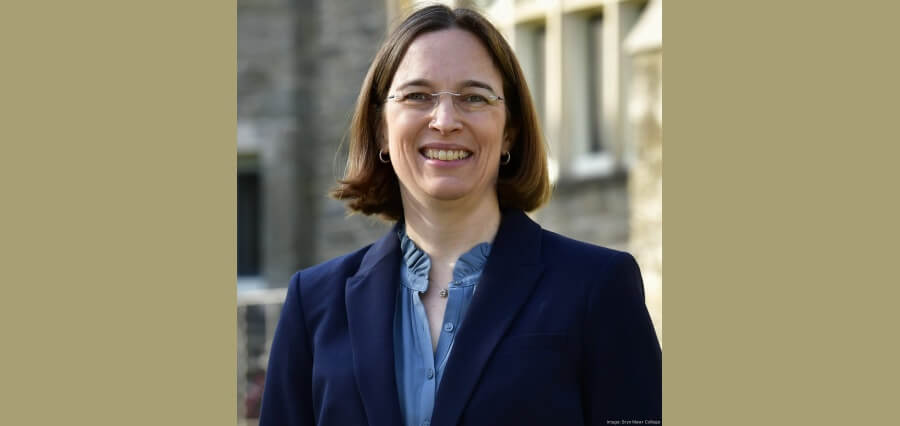Wendy Cadge, who started her tenure in July as the new president of Bryn Mawr College, has been an advocate for accessibility at the old liberal arts institution while at the helm of steering it into its next chapter. A former dean at Brandeis University, Wendy Cadge is originally from Delaware County and has promised to make education here at Bryn Mawr more accessible to students across a range of socioeconomic backgrounds.
For generations, Bryn Mawr College, the very selective women’s college with 1,361 undergraduate students in the 2023-2024 academic year and a $1.1 billion endowment, has been known for academic excellence. But among Cadge’s strategic initiatives is the imperative to make a Bryn Mawr education accessible to students at every income level. First among these initiatives is the development of partnerships with community colleges. Recently, the college made an announcement that they will join with the Community College of Philadelphia in an eligible cohort of students which would help them earn a Bryn Mawr degree in biology, literature, or mathematics in two years. To further this effort, Bryn Mawr will also provide a summer program to community college students and will stipend students to remain on campus to have a more enhanced understanding of the college experience.
Cadge also revealed that there is another partnership in the pipeline targeting transition students from community colleges to Bryn Mawr. The college covers 100% of the financial needs of the students, and this is one of the major reasons why the institution focuses on affordability. Whereas her predecessor, Kim Cassidy started the fundraising momentum, which she will build on, Cadge said that a formal campaign will not begin until after the completion of the next strategic plan for the college which would set an orientation for the institution over the succeeding 18 months.
Under Cadge’s leadership, Bryn Mawr has witnessed a surge in applications from 3,300 in 2023 to a record of 4,000 this year. Though it has witnessed a rise in application numbers, Bryn Mawr still is very choosy; in 2024, the acceptance rate dropped to 29%, from 31% last year. Maintaining an admission process that is not biased in favor of students belonging to the better-off segment of society and who could easily afford superior resources would be crucial for Cadge.
Apart from these accessibility-focused initiatives, Cadge is also looking to strengthen graduate programs at Bryn Mawr. The college was the first women’s college to grant a Ph.D. in addition to its six Ph.D. programs now offered, is searching for how to better prepare the graduate student for today’s job market and how the curricula can be integrated from both undergraduate and graduate levels for an overall educational experience. As she shapes Bryn Mawr’s future, Cadge will see that the institution continues to have relevance in this quickly evolving academic and professional world.





Thank you, your article surprised me, there is such an excellent point of view. Thank you for sharing, I learned a lot.
Thanks for sharing. I read many of your blog posts, cool, your blog is very good.